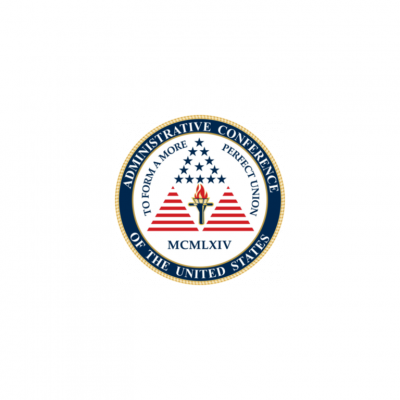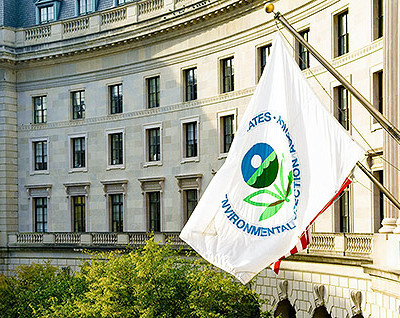December 31, 2018
December 2018 at Policy Integrity
- Amicus Brief on Climate Impacts of PennEast Pipeline
- Weakened Methane Emissions Standards
- New Academic Articles
- Coal Mine Expansion in Colorado
- Homeland Security’s Flawed “Public Charge” Rule
- Livermore Joins Administrative Conference of the United States
- Comments on Drug Pricing Disclosures, Vehicle Standards Analysis, BLM Resource Management
-

Amicus Brief on Climate Impacts of PennEast Pipeline
If constructed, the PennEast Pipeline project will be responsible for a substantial increase in greenhouse gas emissions and over $1 billion of climate damages each year. We submitted an amicus brief to the U.S. Court of Appeals for the District of Columbia Circuit that criticizes the Federal Energy Regulatory Commission’s inadequate Environmental Impact Statement for the project. The agency’s assessment does not discuss the climate impacts that will result from natural gas extraction, pipeline operations, and subsequent combustion. These impacts include property damage, lost productivity, and cardiovascular and respiratory mortality. Our brief argues that the agency’s failure to contextualize and weigh climate damages despite the availability of a widely-accepted tool to do so, the Social Cost of Carbon, was arbitrary.
-

Weakened Methane Emissions Standards
In 2016, EPA finalized a set of performance standards for new, reconstructed, and modified sources of methane and volatile organic compounds in the oil and natural gas sector. A recent proposal, however, aims to weaken the 2016 rule in a variety of ways, with the goal of reducing the regulatory “burden” on industry. We submitted comments that focus on inadequacies in the cost-benefit analysis accompanying the proposed rule. These were submitted alongside joint comments with leading environmental organizations that further discuss the forgone benefits of emissions reductions and EPA’s skewed accounting of costs and benefits.
-
New Academic Articles
Policy Integrity staff published two academic articles in December. Richard Revesz’s piece, “Regulation and Distribution,” came out in the New York University Law Review. Revesz tackles the issue of distributional consequences of regulation, laying out a blueprint for taking account of these concerns in a far more robust way than is done currently.
Michael Livermore and Denise Grab published an article, “Environmental Federalism in a Dark Time,” in the Ohio State Law Journal. Their piece discusses the limits on state environmental policymaking, as well as the efforts of some states to keep moving forward in the face of federal inaction. Livermore and Grab explain how the national government is indispensable to climate policy efforts in cases where collective action is needed.
-

Coal Mine Expansion in Colorado
We recently submitted joint comments that criticize the Bureau of Land Management’s environmental assessment of a proposed mine expansion in Colorado. New plans for the Foidel Creek Mine would allow Peabody Energy to extract nearly five million additional tons of federal coal, extending the mine’s life by two years. We explain how the agency’s assessment miscalculates downstream emissions, such as from coal transportation and combustion, and fails to monetize the climate damages those emissions will produce.
-

Homeland Security’s Flawed “Public Charge” Rule
The Department of Homeland Security (DHS) recently proposed a rule that would substantially broaden DHS’s power to deny applications for lawful permanent residency by deeming immigrants likely to become “public charges.” Whereas the government has traditionally interpreted “public charge” quite narrowly, the proposed rule would dramatically expand the term’s scope – reading it to cover immigrants who receive any of a wide range of federal and state benefits, such as food stamps, Section 8 housing vouchers, and Medicaid insurance coverage. We submitted comments that criticize the cost-benefit analysis accompanying the proposal. DHS fails to adequately assess the rule’s costs, both to the U.S. economy and to affected immigrants and their families.
-

Livermore Joins Administrative Conference of the United States
Michael Livermore, Policy Integrity’s founding executive director and current senior advisor, has been appointed to the Administrative Conference of the United States (ACUS). As a public member, Livermore will work to help improve administrative procedure for the benefit of the American people. Livermore’s appointment adds to Policy Integrity’s involvement with ACUS. Richard Revesz serves as a Senior Fellow, and Policy Integrity’s legal director Jason Schwartz served as an ACUS consultant on two recent projects. Board members E. Donald Elliott and Sally Katzen are Senior Fellows as well, while Boris Bershteyn is a Public Member. Stephanie Tatham, a current Senior Policy Analyst at the Office of Information and Regulatory Affairs and a former Policy Integrity research assistant, is a Government Member.
-

Comments on Drug Pricing Disclosures, Vehicle Standards Analysis, BLM Resource Management
The Centers for Medicare and Medicaid Services recently proposed a rule that would require pharmaceutical companies to disclose the list prices of prescription drugs in television ads. We submitted comments pointing out flaws in the agency’s analysis of the proposal’s likely costs and benefits.
In supplemental comments to the Environmental Protection Agency and the National Highway Traffic Safety Administration on the proposed weakening of vehicle emissions standards, we explain why an analysis submitted by the Alliance of Automobile Manufacturers irrationally undercounts the benefits of the standards using a methodology inconsistent with the practice of agencies across the federal government under administrations of both political parties.
We also submitted comments urging the Bureau of Land Management to quantify the external costs of fossil fuel development and evaluate critical land management alternatives in the Powder River Basin.

